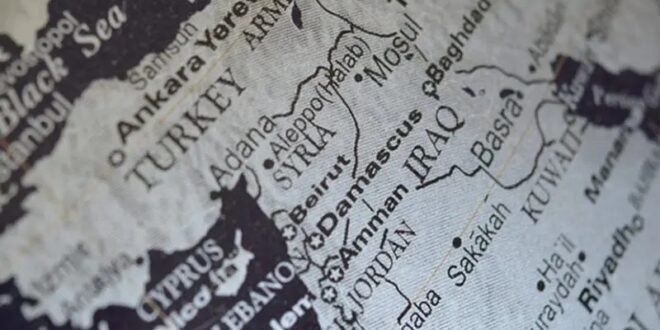Iraq, perhaps unsurprisingly, is a hotbed of gallows humor.
But the tired old joke: “Iran and the West will keep fighting here until every Iraqi is dead,” is no funnier now than it was years ago.
Hundreds of missiles and drones soared over the Middle East this weekend from Iran to Israel, turning the region’s “shadow war” into a direct conflict. And while further escalation is not imminent, people inside Iraq say they have long been in the line of fire, and if the conflict continues like this, it will likely rain violence down on them.
“Many people feel insecure, not safe and that there is a danger to their lives,” said Mazin Mohammed, a father of two and a public relations officer for a women’s rights organization in Baghdad. “Especially that Iraq is considered as one of Iran’s wings.”
Iraq is one of the world’s few Shiite Muslim majority countries, and home to several powerful Iran-backed Shiite militias. But it is also politically, religiously, and ethnically divided, with about 45% of the country being non-Shiite.
Many Iraqi leaders and some entire regions hold strong alliances with the West, particularly with the United States, which operates multiple large military bases in the country.
Iraq’s competing alliances, coupled with decades of war, insecurity and deep poverty, leave its residents especially vulnerable if Israel and Iran continue to fight — either directly or via proxies within its own borders.
Literally in the line of fire between Iran and Israel, Iraq saw parts of missiles fall on its terrain over the weekend.
“I don’t think that the war will be only inside Israel or Iran,” said Mohammed.
Iranian fears
In Irbil, the capital of Iraq’s northern Kurdistan region, Ebrahim, 29, is an Iranian English teacher who hasn’t lived in his country for 10 years. Yet still, he prefers not to share his surname for fear of retaliation from the Iranian government.
Ibrahim grew up attending anti-Western rallies and hearing calls for the destruction of Israel. But he believes that for many Iranians, the idea is now dated, despite widespread sympathy for civilians in Gaza.
“The people of Iran, they don’t feel that this is their war,” he said by phone on Sunday evening. “And if they want to think about the outcomes and the ramifications or the consequences, then people are going to be hurt.”
Regardless of popular opinion, however, the war has escalated and may continue to do so, added Sanam Vakil, Middle East and North Africa program director at Chatham House, in a statement on Sunday.
“Iran has tried to reinstate deterrence, showcased its defense capabilities,” he said. “But it’s uncertain if it can avoid an Israeli counterattack on Iran directly.”
But fears of escalation may be overblown, as it’s hard to see who would be served by a larger conflict, according to Ebrahim. Iran has suffered a decade of economic turmoil that plunged millions into poverty as the price of basic goods, like food, has soared.
The Iranian government has also grown increasingly unpopular in recent years, according to analysts, and further conflict would risk a deeper economic crisis, and perhaps a tightening of the sanctions that continue to cripple Iranian attempts at economic recovery.
“I don’t think that the Islamic Republic is at any point of being able to wage this war,” said Ebrhahim. “Or afford it.”
Eclectic interests
Far from the urban chaos of Baghdad or the manicured streets of Irbil, in the breezy Kurdistan hills near the Iranian border, some Iranian-Kurdish dissidents see a potential advantage to the conflict.
Jina, 32, fled her country in 2022 after sustaining gunshot wounds in protests over the death in police custody of Mahsa Amini, a young Kurdish-Iranian woman. Her death set off a nationwide opposition movement in Iran, calling for women’s rights and other freedoms.
Nationwide crackdowns eventually crushed the protests, but recent lackluster national elections indicate the crackdown did little to quell discontent. According to Jina, any international actions, including attacks, that weaken the Iranian government are a potential boon for human rights and freedoms.
“Iran is not even taking care of its own people, while launching missiles against Israel or other countries,” said Jina, who also doesn’t want to use her full name for fear of retaliation. “Iran uses this creation of problems to shift the focus off their own bad behaviors.”
But like families in Iraq, Jina also fears that civilians will ultimately be the victims of the war.
“I called my family and asked them to stay inside and not to leave home,” she said. “I asked my sister-in-law not to let her kids go to school.”
 Eurasia Press & News
Eurasia Press & News

